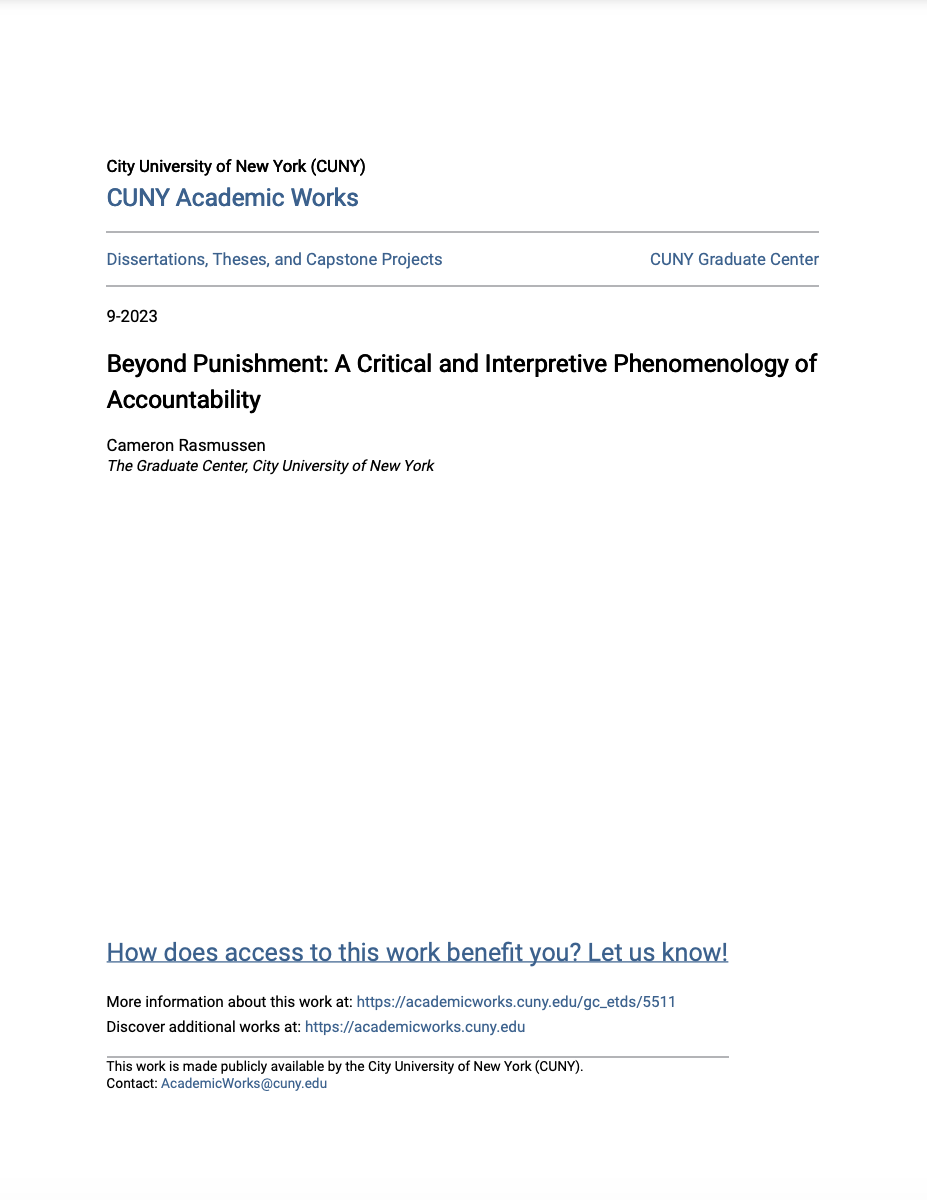Abstract: State responses to interpersonal violence in the US have long been focused on punishment and prison. While opposition to punitive responses to interpersonal violence has been marginal, there are small but growing efforts to challenge the primacy of punishment and incarceration. In its place, different non-punitive approaches to justice have been practiced and promoted including restorative justice and transformative justice, which see accountability, not punishment, as a primary goal. Accountability has been theorized and researched largely from the perspective of survivors of harm, and there is limited research on the experiences of people who have caused harm and engaged in accountability-taking.
Using a critical and interpretive phenomenological approach, this study interviewed 11 men who committed homicide, served long sentences in prison, participated in a restorative process while incarcerated, and have since come home. They were asked how they defined accountability, how they expressed it in the context of their offense, and what supported and hindered their accountability-taking. The study found that informants’ definitions and expressions of accountability largely aligned with existing literature and affirmed two important ideas that to date have been marginal in discourse and scholarship. Most informants reported accountability was a process that took time, and individual v agency was critical to their accountability-taking.
The findings revealed a variety of forces that supported and hindered accountability-taking. There was no single pathway to accountability, nor was there one relationship, experience, or intervention that alone was responsible for cultivating accountability and engendering accountability-taking. Instead, the process of accountability-taking involved a constellation of factors and eventually an accumulation of supportive relationships, experiences, and programs that fostered and sustained accountability. Supportive factors also included time, experiences of safety and acceptance, and an intentional space to deepen accountability for their offense. While there were mixed experiences of the role of incarceration, the pervasive punishment of prisons was a barrier to accountability-taking.

